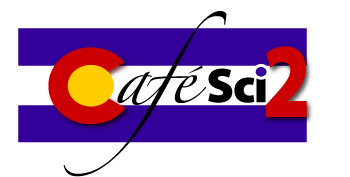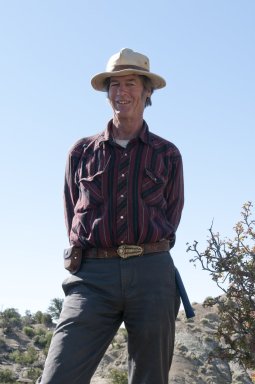|
|
|
More energy is coming into our planet than is leaving it. This dis-equilibrium is modulating our world. Colorado is amid a nexus of changes; changes that are swirling about us right now. Issues ranging from fracking to flooding to forest death to water shortages to loss of coal mining jobs are discussed daily. Geologists have defined our time as the Anthropocene, the age of man. We have become a global force, an agent of change of such magnitude that millions of years in the future our mark will be manifest on the record of life on earth. Our evening discussion will review some of the data sets that define the changes we are observing, then will move to a review of practical and proactive steps that are being taken in the Front Range by our citizens. We are modifying the way we generate electricity, we are changing the way we consume water. We are cleaning up our air, cleaning up our city, and re-orienting our society to flourish in the new era in front of us. I will stress that it is not a fait accompli; we have big challenges and much work ahead of us; but if we are not up to the task, then whom?
|

 Bob Raynolds is a Research Associate at the Denver Museum of Nature & Science and received his BA and PhD degrees in geology from Dartmouth College. His current research is on sedimentation in the Denver Basin, geology of aquifers, and climate change. He is the author of publications on remote sensing, stratigraphy, sedimentation, volcanology, hydrogeology, and earth science education. Bob has done field work in Bolivia, Mexico, Guatemala, El Salvador, Nicaragua, Panama, Malawi, Kenya, Botswana, Ethiopia, Egypt, China, Pakistan, Nepal, and Tibet and held a Fulbright Professorship in Pakistan. He is a fellow of the Geological Society of America and a member of the International Association of Hydrogeologists.
Bob Raynolds is a Research Associate at the Denver Museum of Nature & Science and received his BA and PhD degrees in geology from Dartmouth College. His current research is on sedimentation in the Denver Basin, geology of aquifers, and climate change. He is the author of publications on remote sensing, stratigraphy, sedimentation, volcanology, hydrogeology, and earth science education. Bob has done field work in Bolivia, Mexico, Guatemala, El Salvador, Nicaragua, Panama, Malawi, Kenya, Botswana, Ethiopia, Egypt, China, Pakistan, Nepal, and Tibet and held a Fulbright Professorship in Pakistan. He is a fellow of the Geological Society of America and a member of the International Association of Hydrogeologists.